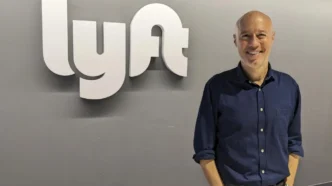Lyft is finally crossing the Atlantic. The U.S.-based ride-hailing company has announced its plan to acquire German mobility platform FREENOW for $197 million in cash. This marks Lyft’s first foray into the European market, more than a decade after its launch in North America.
Founded in 2012, Lyft has long remained focused on the U.S. and Canadian markets, while its biggest rival, Uber, rapidly expanded worldwide. With this deal, Lyft is making a bold move to close that global gap. FREENOW, which operates in nine European countries and more than 150 cities, will bring Lyft immediate access to markets in the U.K., Germany, France, Spain, Italy, and others.
The acquisition deal, struck with current FREENOW owners BMW and Mercedes-Benz Mobility, is expected to close in the second half of 2025. Once finalized, it will significantly expand Lyft’s addressable market and reshape its competitive positioning.
FREENOW’s Growth Attracts Lyft’s Global Ambitions
FREENOW has been a key player in Europe’s urban mobility space, offering users access to taxis, private hire vehicles, e-scooters, and car-sharing services. The platform recently pivoted to emphasize its taxi segment, a move that paid off with a 13% year-on-year growth and break-even profitability. That progress seems to have caught Lyft’s attention.
For Lyft, this isn’t just about expansion—it’s about transformation. According to the company, integrating FREENOW could nearly double its total addressable market to over 300 billion annual personal vehicle trips. It also estimates a boost in annualized gross bookings by around $1.14 billion.
Lyft CEO David Risher called the deal a milestone in the company’s global ambitions. He emphasized that FREENOW’s locally-driven strategy aligns with Lyft’s own values. He noted that both companies share a customer-first mindset, making them a strong cultural and operational fit.
BMW and Mercedes-Benz Mobility, on the other hand, are stepping back from mobility ventures like FREENOW to focus on their core operations. In their joint statement, the automakers highlighted ongoing investments in AI, electrification, and decarbonization as part of their long-term strategies.
What Changes for Riders and Drivers in Europe and North America
While FREENOW will continue to operate as-is for now, Lyft hinted at future benefits for both drivers and riders. One major focus will be on building seamless integration between the two apps, enabling users to book rides effortlessly whether they’re in Europe or North America.
Lyft said there will be no immediate changes to the FREENOW experience, but that riders and drivers should expect added benefits over time. This cross-platform integration could become a key differentiator, offering a unified mobility experience for users traveling internationally.
With this acquisition, Lyft isn’t just entering Europe—it’s aiming to become a truly global mobility platform. As the company continues to compete with Uber and other local players, this move could reshape the ride-hailing landscape across two continents.













